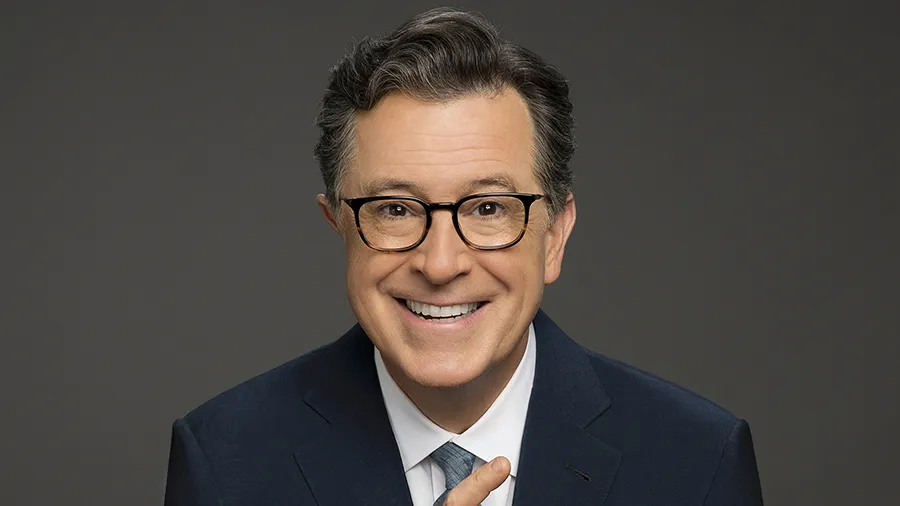Mati full of tears from the deadly fires. Kineta The Sad days for Greece
Grief In Greece Capital, Athens, As Fire Hits Residents
The Silence After the Laughter: Why the End of Stephen Colbert Is More Dangerous Than You Think
By Francesco Vitali

The lights will soon dim. The applause at the Ed Sullivan Theater will come to a sharp stop. There will be no replacement, no next chapter—only an end. Stephen Colbert will leave in May, and with him, something far greater than a TV contract will disappear.
For nearly a decade, every night, he spoke to millions of Americans with the safety of humor and the boldness of truth. He wasn't just another entertainer. He was a compass in a foggy political sea. He mocked power not for show, but for clarity. He didn't aim to please. He aimed to wake you up.
Now? Silence. Officially, due to "financial reasons." Unofficially? Because the era is shifting. And it can't tolerate voices like his anymore.Colbert's departure isn't just media news. It's a cultural earthquake. It's another sign that humor—when it's honest—is never harmless. And when it's inconvenient, it gets cut.
Colbert Wasn't Filling Air Time. He Was Filling a Void.
Some hosts fill a time slot. Others build culture. Stephen Colbert did the latter. From the moment he took over "The Late Show," he transformed it from formulaic late-night fluff into a nightly broadcast of conscience. He didn’t just serve jokes—he exposed hypocrisy. He didn’t recycle memes—he made systems uncomfortable.
In the Trump era, he was among the few who stood tall without screaming. He wielded a smile like a scalpel. His monologues didn’t soothe. They sharpened. Colbert never pretended to be neutral—and that was his most radical act.
As the world slipped into cheap cynicism and cultural fatigue, Colbert held the line. Not with outrage. With intelligence. And intelligence, these days, is a liability.
He was a problem. A problem because he proved you could still speak truth from within the mainstream. That you could be part of "the system" without selling your soul to it. For the media empires steering toward a friendlier, flatter future, that was intolerable.
They couldn’t handle him anymore. Not the advertisers. Not the boardrooms. Not the political weather.
When Laughter Stops Being "Safe," the Calls Start Coming
For decades, political satire in America was the system’s release valve. Hosts told a joke, the audience laughed, anger defused—and the machine rolled on. Comedy was seasoning, not substance. Colbert changed that. He didn’t defuse rage. He redirected it. He didn’t protect the system. He revealed it. And as 2026 looms, as Trump rallies his revenge tour and networks cower behind spreadsheets, Colbert wasn’t just a voice. He was a risk. Because make no mistake: in America today, you’re not censored with a muzzle. You’re censored with a budget meeting. A memo. A non-renewed contract. So when they say "purely financial," don't be fooled. It's the most polished way to say: "You made the wrong people uncomfortable." His laughter was honest. And in today's climate, honest satire is no longer considered commentary. It's activism. And activism is off-brand.
When the Last One Speaking Goes Quiet, It's Not Silence—It's a Void.
Losing Stephen Colbert isn’t just the end of a host. It’s the loss of a vital connection between people and reality. When satire is done right, it isn’t entertainment—it’s oxygen. It helps you process the madness without surrendering to it.
Colbert managed what few can: to decode power without draining your spirit. To make you laugh, but not forget. That was liberating. And that's why it's dangerous to those who want a quieter, simpler, dumber public.
So what are we left with now?
Late night lined with toothless grins. Entertainment that says nothing. Jokes that punch sideways, never upward. And slowly, an audience that no longer expects truth, intelligence, or courage. A public trained to accept noise over meaning. And that, more than anything, is the real loss. You Can Shut the Mic. You Can’t Kill the Voice.
Colbert isn’t leaving because he failed.
He’s leaving because he said what wasn't meant to be said—and too many listened. That's what power fears: not irrelevance, but resonance. They didn’t silence him with censorship. They silenced him with "strategy." And behind that cold decision is the oldest trick in the book:
Mute what you can’t control.
But Colbert was never just a timeslot. He was a voice. And voices like his are not designed to disappear. They rise. When we need them most. We may not see him again at 11:35 PM every night.But we will hear him again.Where it matters. Where truth finds breath. Where humor still has bite. Where people are still willing to laugh without surrendering.
And to those who think they’ve buried him, let this echo:
Democracies don’t end with explosions.They end when the brave stop speaking.Colbert broke their silence.That’s why he’s not done.
That’s why he will return.